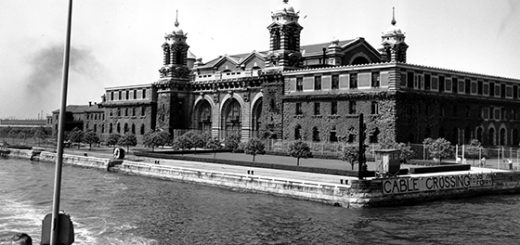Let my people fail.
“…in the good Providence of God, apparent failure often proves a blessing.”
— Robert E. Lee
It is often said that we in America take our freedoms for granted. Our founders assured us of freedom to worship as we see fit, freedom to speak our minds, freedom to pursue our dreams, freedom to own the fruits of our labor and freedom to criticize and, if necessary, change our government.
If we take these freedoms for granted, as surely we do, then it is certain that we take another important freedom for granted. It’s a freedom that is almost never discussed and one that we might not even realize that we have.
Yet this freedom, perhaps more than any of the others, is central to the success of the American economic and social model.
We can never thank our founders enough for giving us the freedom to fail.
Just as you can never truly love absent the risk of heartbreak, you can never truly succeed absent the risk of failure.
In ancient Greece, if a man failed financially and could not pay his debts, his wife and children were cast into debt slavery until creditors recouped losses through their forced labor. Debtors prisons were common throughout Europe until late in the 19th century.
With the threat of imprisonment hanging over every citizen, there was little risk taking. And that was one important reason that economic opportunity for average citizens did not exist. Without the freedom to fail, there was little freedom to succeed.
In America, our freedom to fail is enshrined in Article 1, Section 8 of the Constitution. The founders recognized that human enterprise could only succeed if there were adequate mechanisms for disposing of failure. The resulting U.S. Bankruptcy Code that has evolved over the past two-plus centuries provides an orderly process for dealing with financial failure. That orderly process sets the stage for later success.
Failure is a better teacher, and fear of failure is a better motivator than is the anticipation or realization of success. It is often said that whom the gods would destroy, they make prosperous.
This is not to say that failure is pleasant. Financial failure shatters dreams and ruins marriages. Financial failure contributes to mental and physical illness and has put many in early graves. In the current environment, any middle class family, any small business owner or any big company CEO who is not considering the possibility of failure is not paying attention.
Yet failure is a necessary part of a free market economy and absent the freedom to fail, and absent a willingness to allow failure to take place, we severely limit our ability to succeed.
For decades, General Motors, Chrysler and Ford stood astride the world in the automotive industry. Today, two of these three are insolvent and operating only because our government has loaned them our money.
Using GM as an example, better in my opinion to let the company fail than to prop it up with taxpayer capital. GM is not beyond redemption. Over the past 15 years, GM has invested in world-leading design and assembly technology and is right now building outstanding vehicles, capable of competing with the best of Europe and Japan.
That technology, that expertise and that capital plant would not vanish if GM were allowed to fail. Quite the opposite, in fact. If GM failed, investors would see opportunity in buying GM’s performing assets and human talent in order to move forward with a new, revitalized carmaker — one that retained the best of the old company together with the hard lessons learned. Such a process would make America’s auto industry stronger and we would all be better off.
I am appalled at the idea of the U.S. government, together with the labor unions, owning control of America’s largest automaker. I fear that it won’t work. I would rather see our leaders in Washington do what their predecessors have done throughout the history of the American miracle. Let American business have the freedom to fail so that we can all benefit from the resulting freedom to succeed.









This is a very good example of what you discuss in your five part series Paul regarding to much government involvement but it goes another step to show us the narcissistic personalities of the people we have as our elected officials. Over time the people of Washington have begun to have the mindset THEY are to big to fail. These people feel they know more about what we need or should want than we do. We the people are somewhat responsible for this Washingtonite narcissism as we have continued to reelect the same people over and over with virtually no expectations of responsibility and never having to answer for their actions. The current administration sees no problems with insinuating itself into certain processes that heretofore were left completely to the bankruptcy courts. The fact that the president of the United States has involved himself into these issues on such an intimate level where legally and historically he has absolutely no business is just a prime example of the attitude of superiority Washingtonites feel they have over “we the people”. These people have got to be reined in and to use an old adage “Be knocked down a peg” as they are not royalty despite what they might think.